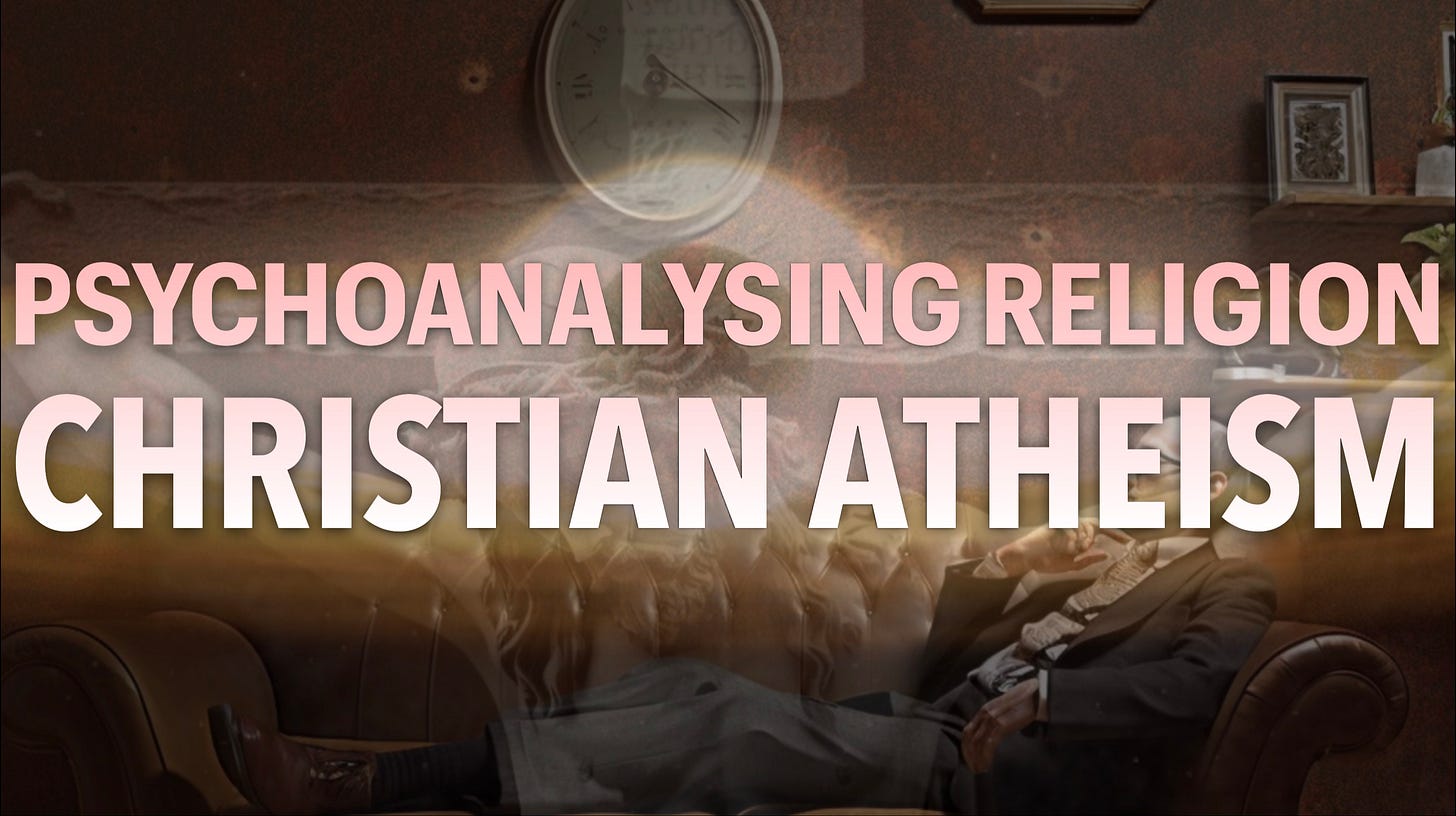The next Philosophy Portal course starts October 20th and focuses on the concept of Christian Atheism. The course will feature classes on German Idealism, Hegelo-Marxism, Nietzsche and Psychoanalysis, Altizer’s Gospel, Žižek’s Philosophy, and Rollins’ Theology. The course will also feature guest lectures from Slavoj Žižek, Peter Rollins, Barry Taylor, and Mark Gerard Murphy. To find out more, or to get involved, see: Christian Atheism.
The video below is part of pre-course material for the course on Christian Atheism:
In this video:
Freud’s personal relation to religion is analysed along with his three-pronged approach to religion as related to unconscious wish-fulfilment, superegoic masochism as well as symptomal compromise formations
Freud’s theory of the origin of religion based on anthropological data on the incest taboo, as well as psychoanalytic data on the importance and centrality of the power of the father for the child in a state of helplessness
Freud’s reasons for why religion was both historically necessary to build human civilisation, as well as why it persists even though its justifications are not inherently rational
Freud’s basic thesis that human beings must go beyond religion, and that going beyond religion coincides with maturity, on both an individual level as well as on a collective level
Lacan’s approach to religion as a problem that was not sufficiently addressed in Freud’s work, involving a deeper understanding of the structure of language, and formalised in the idea that “God is unconscious”
The structure of the religious problem requires a reformulation of psychoanalytic categories like the Imaginary, Symbolic and Real, which provide us with new resources to address the question “what is religion?”
Lacan’s basic orientation is not towards maturation or coming to terms with reality, but rather orientation towards the strange and the alien on the level of jouissance, and specifically an “other” jouissance beyond the phallus (father)
Note: in the course itself, this pre-course material will not only be further developed, but also provide us with a foundation for further discussion.




